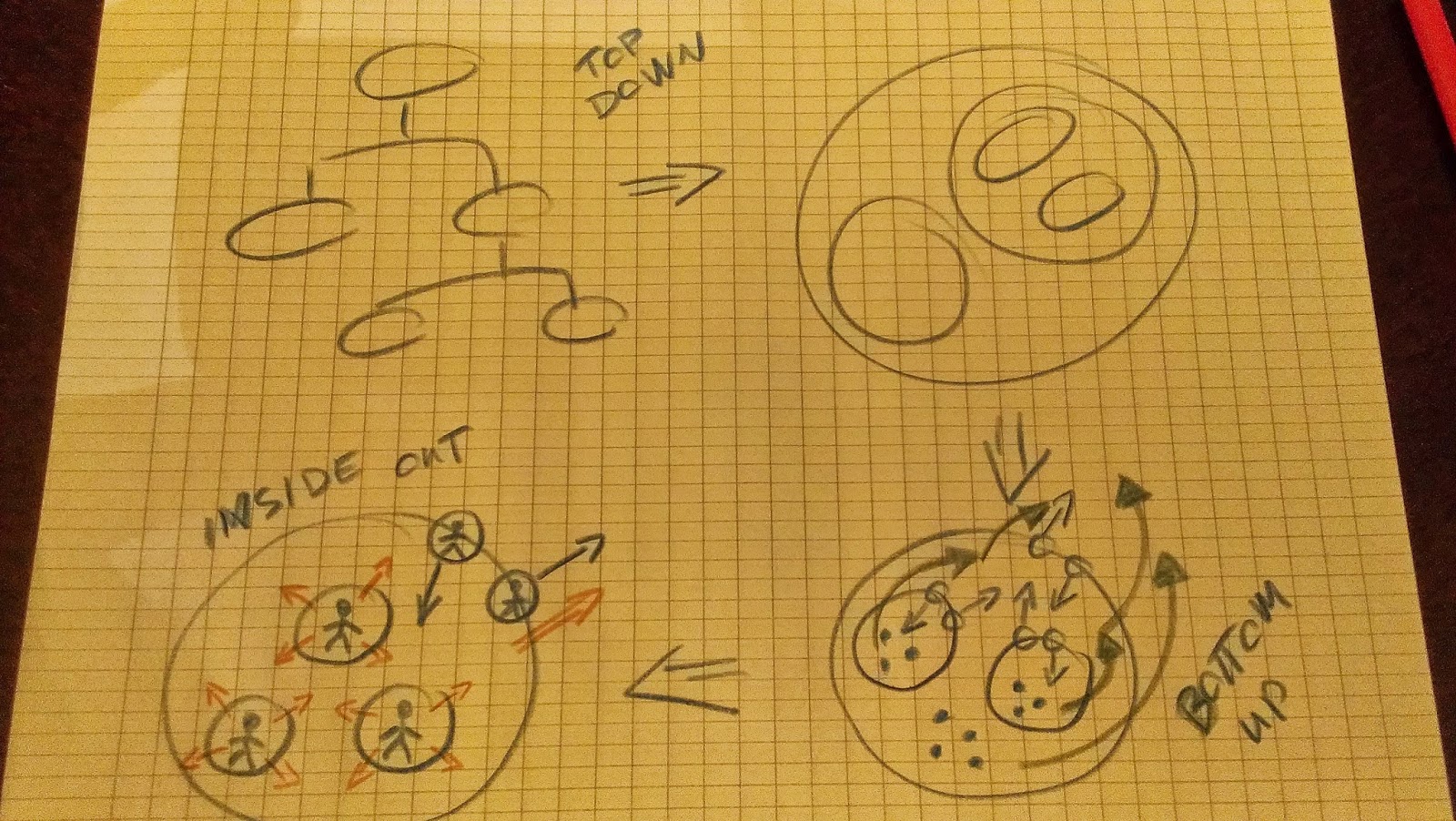So many things happened. A major thing was that Integral Theory and Spiral Dynamics gained more recognition via Frederic Laloux's famous book Reinventing Organizations. With likeminded friends we founded a learning circle in Budapest to help each other towards both Teal practices and holacracy.
Fun fact: we named our learning circle Circle43 which is the holon incorporating 42 - a relevant info on Towel Day. Today we provide help and knowledge for other entities and individuals, not just each other. Come to one of our meetups if you are in Budapest!
Meanwhile in Doctusoft Integral Theory and Spiral Dynamics helped us to understand why holacracy works and why it is hard to practice. We incrementally learned more and more about the nature of purpose, responsibility accountability, domains, proactivity, empowerment and how these can be integrated in a closed system.
But the most interesting episodes of the story are always those that are not told. The ones in the personal and in the organizational shadow. Classic consulting has no tools where Teal starts and holacracy starts to work seamlessly. The tool and the tool using consultant need to act as one and be continuous. So for the sake of the change – I quote Ghandi here - be the change you want to see in the world. I share these stories personally, like at the Integral European Conference.
During these three years I failed and we failed several times to practice holacracy properly, and we kind of dropped it. Every time we let it go after these failures, some elements of it crept back under the door and became part of our practice which made us to try it again. Also in every iteration the power shifted a bit more towards those who had less in the beginning.
My key learning of these years is that organizational change has a natural pace. This pace mostly depends on the adaptive capacity of the power holders and the change agent and of course the environment. Holacracy is not just a good system for mature companies already having a culture of self-management. It is also a good measuring tool. It measures the maturity of the culture we have. Are we mature to self-manage and shift power? Are we mature to define our purpose and go for it? Are we mature to be sincere, mindful people and build a culture for wholeness?
I will be kind of proud in Vienna when I share the Doctusoft story with other practitioners. First of all three years is a long time. Secondly, standing up after each failure proves that we had commitment and character. But most of all, we grew while we walked on paths that very few might walked on before us in Hungary. And that really kicks ass.



